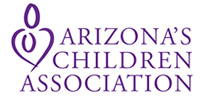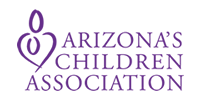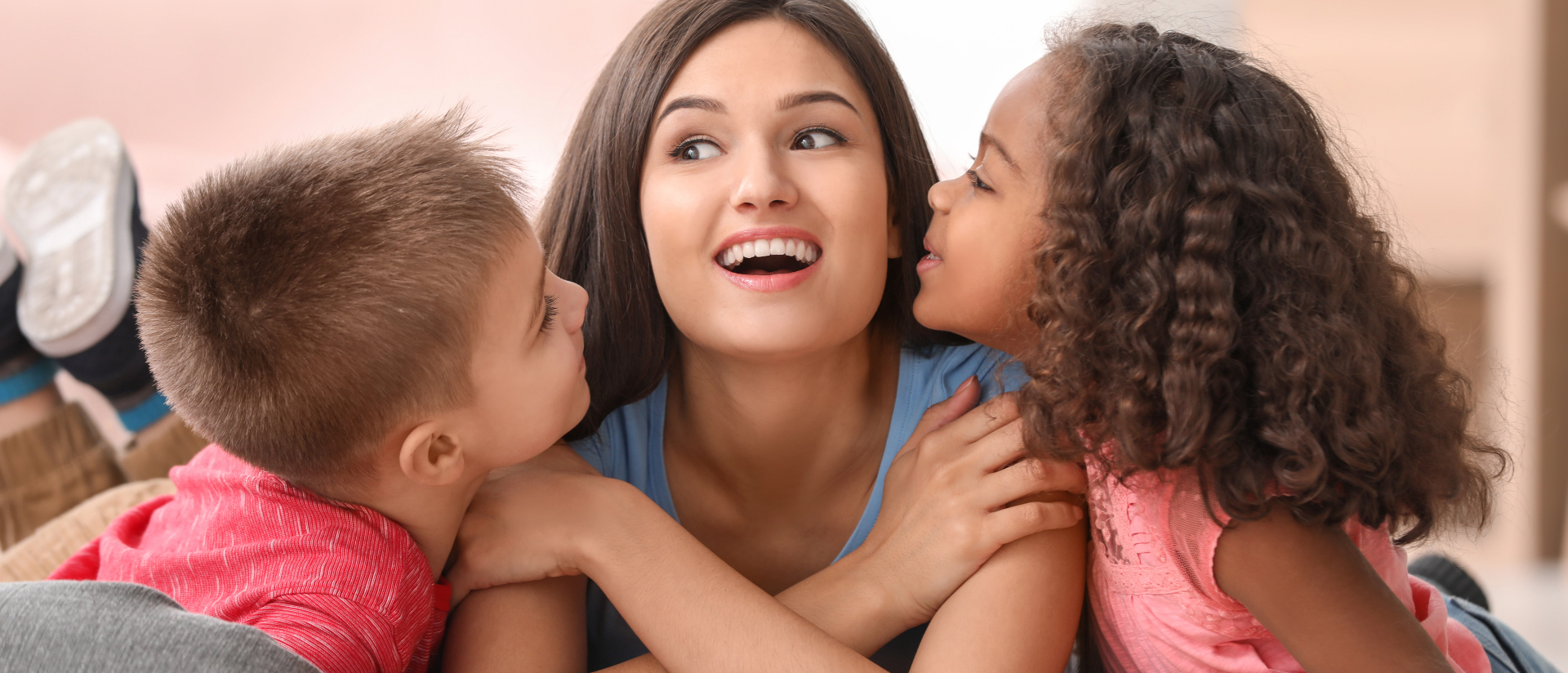
Foster Care & Adoption
Arizona’s Children Association (AzCA) is the largest foster care provider in the state! We train and support foster care families who can open their hearts and homes to vulnerable children while their biological families are on the mend. We also collaborate with adoption placing agencies to provide a variety of adoption related services for those seeking to adopt internationally, privately and from the foster care system.
In partnership with the Arizona Department of Child Safety
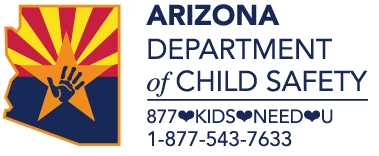
THERE ARE MORE THAN 11,500 Children
IN ARIZONA’S FOSTER CARE SYSTEM AND THERE IS A CRITICAL NEED FOR FOSTER FAMILIES TO CARE FOR THEM ACROSS STATE.
FOSTER CARE
We recruit, train and provide necessary supports for our foster families. We pride ourselves on having a variety of unique programs and services available to help meet their needs.
We welcome traditional and non-traditional, single or two-parent families regardless of race, religion, gender, marital status, sexual orientation, gender identity and expression, national origin or disability.
Steps to Foster Care


Review the Requirements
- 21 years of age
- Married or single
- Financially stable
- Emotionally ready for parenting
- In good physical health
- Free of serious DCS or criminal background
- Flexible schedule to meet needs of children in care
- Able to provide transportation for children
- Willing to consider sibling groups
- Available to take in children on emergency notice
- Committed to reunification with the child’s biological family

Attend an AzCA info session for more information
- We’ll discuss the needs of children in care, what it takes to foster or adopt, the process of licensing/certification and the support/resources we provide our families
- AzCA’s training calendar

Complete an orientation through the DCS website
- This orientation will generate a certificate for attending and is a foster family’s first step toward becoming licensed.

Background Check, Home Study, Home Inspection & Training
- Our foster families must be approved by the state through the foster licensing process, which includes a background check, interviews, required training hours, fingerprinting and home study. This process typically takes 90-120 days to complete and begins with an initial visit to your home to review general requirements, paperwork and training.
- Training Process
READ MORE
- Foster Parent College is a 5-week training course. This training is intended to aid potential foster/adoptive parents in understanding the children’s needs, introduces parents to the child welfare system and their role, and gives families and the agency an opportunity to get to know one another. This pre-service training consists of 11 online courses and 15 hours of in-class instruction. In addition to this 5-week training course, foster families will also attend a trauma-specific education class called Healing Through Relationships that will aid in their understanding of the effects of trauma and how to help children heal. The final pre-service required class is Medication Administration.
- Towards the end of the Foster Parent College, foster care specialists will schedule interviews with all adult members of the household. These are typically 2 to 3-hour individual interviews to get to know your family, your childhood, your education and job experience, your relationships, and significant life events and how they have affected you. This will also be the time that children in the home will be interviewed. Home inspections are also usually completed during these last weeks of training. For a foster family, when they are ready, the Office of Licensing and Regulation (OLR) conducts a home inspection. For adoptive families, your foster care specialist will conduct a home inspection to ensure everything is in compliance with state standards.
- After completing Foster Parent College, Healing Through Relationships, Medication Administration, and completing the necessary paperwork, foster care specialists finalize the information they need to complete your home study.
- During the thirty to sixty days after a family completes Foster Parent College, foster care specialists write your home study which is usually 20 – 25 pages. This is a report on all of the information gathered about the family, background, training, experiences, how the family operates and any other relevant information. For foster families, the home study is submitted to OLR for licensing and may take several weeks to review the studies. When a foster family is licensed, they go on AzCA’s placement list and are ready to be matched with children who need a home.
If you are interested in learning more about becoming a foster parent, complete an interest form and we’ll contact you shortly.
THERAPEUTIC FOSTER CARE
Therapeutic Foster Care is a service that is provided to children who require a higher level of care and intervention than regular foster care can provide. Our therapeutic foster homes provide a safe and highly structured living environment for children with moderate to severe behavioral and emotional challenges.
These children require the maximum amount of support and supervision that a family can provide. Our licensed therapeutic foster parents work with the children and teach them healthy social and coping skills to assist them in meeting life challenges with positive responses.
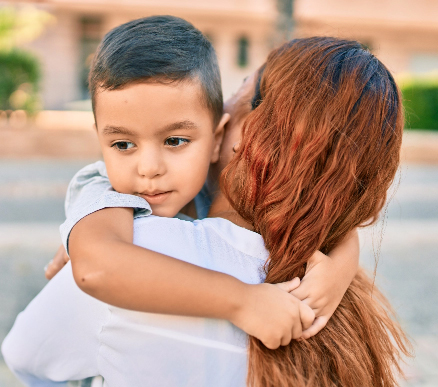
Providers Requirements
- Be at least 25 years old and have experience working with traumatized children.
- Have room in the home for each child to have his/her own bedroom.
- Be emotionally, physically and financially stable.
- Pass a home inspection, a basic physical exam, a DCS clearance check, and obtain a Level One Fingerprint Clearance card.
- Be willing to learn new skills.
- Have at least one stay at home parent. This person will be the primary caregiver, and should be the person with the required skill set. Single applicants must have a very flexible schedule.
- Attend extensive training and participate in the home study and interview process.
- Work as a member of a therapeutic team, attend meetings and therapy sessions.
- Accept and understand behaviors of children who have been impacted by trauma.
We will support your family and the children in your home beginning with the placement matching process all the way through discharge.
If you are interested in learning more about becoming a provider, complete an interest form and we’ll contact you shortly.
ADOPTION
 We collaborate with adoption placing agencies to provide a variety of adoption related services for those seeking to adopt internationally, privately and from the foster care system. We are experts at supporting families through the adoption certification process and beyond.
We collaborate with adoption placing agencies to provide a variety of adoption related services for those seeking to adopt internationally, privately and from the foster care system. We are experts at supporting families through the adoption certification process and beyond.
Our Adoption-Related Services
- Recruitment, assessment, training and supervision of adoptive families for children in Arizona’s foster care system
- Interstate Compact (ICPC) services for children placed in Arizona by other county or state jurisdictions
- Step parent adoptions
- Grandparent and family member adoptions
- Home study and post placement services for attorney-facilitated adoptions, step-parent adoption, relative adoption and international placing agencies such as:
- – Fingerprinting
- – Background checks
- – DCS Clearances
- – Severance Social Studies
- – Certification Home Studies
- – Pre and/or Post Placement Reports
- – Final Adoption Studies
If you are interested in learning more, complete an interest form and we’ll contact you shortly.
ADDITIONAL STATE CONTRACTS
Home Assessment & Courtesy Supervision (HACS)
Our Home Assessment & Courtesy Supervision (HACS) and Interstate Compact for the Placement of Children (ICPC) contracts help to ensure the protection and services to children who are placed in foster care across state and county lines.
For children who cannot remain safely in the care of their biological parents due to allegations of abuse or neglect, the Arizona Department of Child Safety (DCS) believes children should reside with grandparents, relatives, or close family friends, otherwise known as kinship families, whenever it is safe and appropriate.
AzCA’s Home Assessment & Courtesy Supervision (HACS) Program provides assessment and supportive services to these children and kinship families served by DCS. Services involve completing Home Study Assessments, including for children currently residing in congregate care settings, Courtesy Supervision, and Annual Guardianship Reports.
This program works to ensure the safety and well-being of our children, while increasing and promoting stability, and verifying the caregiver is meeting the needs of the youth in their care.
Home Assessments
Home Study Assessments involve the completion of comprehensive evaluations, which are submitted to DCS regarding the prospective kinship caregivers, their household members, and home environment. Final placement decisions are not determined by AzCA but, rather, DCS and are based on the best interest of the child.
For children who have been placed with unlicensed kinship families through the Home Assessment process, we assist the families with the following:
- Obtaining Level I Fingerprint Clearance Cards
- Gaining access to financial, medical, behavioral, and mental health services
- Understanding and applying for Foster Care Licensure
Courtesy Supervision
Courtesy Supervision occurs when children in Arizona’s foster care system are placed in counties/regions outside of where the referring DCS Specialist is located geographically. AzCA conducts, at minimum, monthly home visits with the child or youth and their caregivers to determine needs, bridge and reinforce the communication with the referring DCS Specialists, and provide connections to additional community resources.
Annual Guardianship Reports are required one year after a Permanency Guardianship has been granted for child or youth.
AzCA’s HACS Program is a referral-based service currently provided throughout all fifteen counties of Arizona. All HACS referrals must be routed through the Arizona Department of Child Safety. For further information, please email us at kinship@arizonaschildren.org or visit the Arizona Department of Child Safety website.
Interstate Compact for the Placement of Children (ICPC)
AzCA’s Interstate Compact on the Placement of Children (ICPC) Program focuses on the safety and well-being of our children and families. ICPC is premised on the belief that children requiring out-of-state placement will receive the same protections and services that would be provided if they remained in their home states. This compact between states and U.S. territories establishes uniform guidelines and procedures to ensure protection and support services are provided to children placed across state lines.
AzCA provides ICPC services on a statewide level, and includes conducting relative foster care licensing, and/or adoption home studies, as well as supervision and monitoring of the placement. AzCA provides additional support by meeting the needs of these families by providing connections with community-based services and resources, including, but not limited to:
- Advocacy
- Early intervention services
- Medical, behavioral, and mental health services
- Educational resources
- Social and cultural connections
- Parent skill-building opportunities
- Support groups
The ICPC program is referral driven that initiates in the state in which a child resides. To begin the ICPC process for a child that is currently a ward of another state, please contact the respective state’s Case Manager. For further information, please email us at kinship@arizonaschildren.org or visit the ICPC State Page.
Fostering Sustainable Connections
Research demonstrates that all young people need a consistent, nurturing support network of adults in their lives in order to form healthy attachments and develop positive social and emotional skills. Foster youth placed in group homes and shelter care settings often fail to develop caring, lasting relationships, setting them up for increased risk of poor educational outcomes, homelessness, becoming parent’s at a young age, and becoming incarcerated.
AzCA’s Fostering Sustainable Connections (FSC) strives to help foster youth living in congregate care develop a natural support network of family, friends, neighbors, coaches or teachers that can help them feel loved and supported, which in turn helps them to be successful throughout their lives.
The program’s framework is the Family Finding Model created by Kevin Campbell Fostering Sustainable Connections with AzCA Video and the 3-5-7 Model from Darla Henry 3-5-7 Model® Framework and operates on the belief that youth are more successful when their natural support network is involved.
AzCA team members utilize a number of family finding activities when working with the youth to discover various connections and help the youth to tell their own story including:
- Utilizing social and other online search tools to find connections that the youth and other family members have identified
- Invite connections to engage with the youth and become part of the team that helps in the decision making process with and for the youth
FSC works with youth as young as 5 up to 17.
Program director, Jennifer Barrie explains more about FSC here:

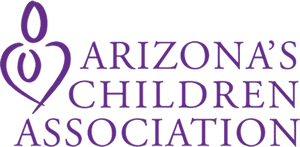
Your financial support directly impacts our ability to bring programs and services to those who need them.
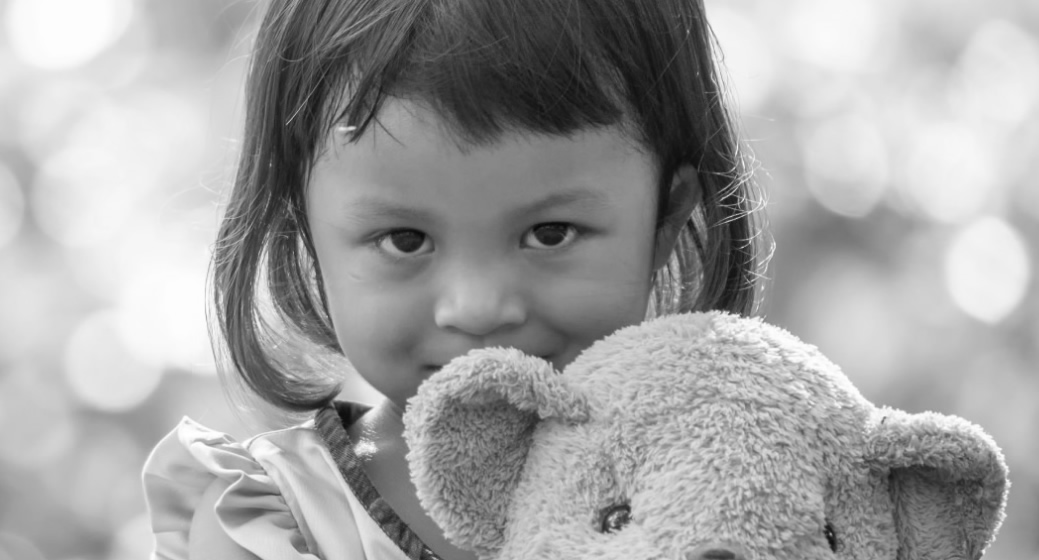
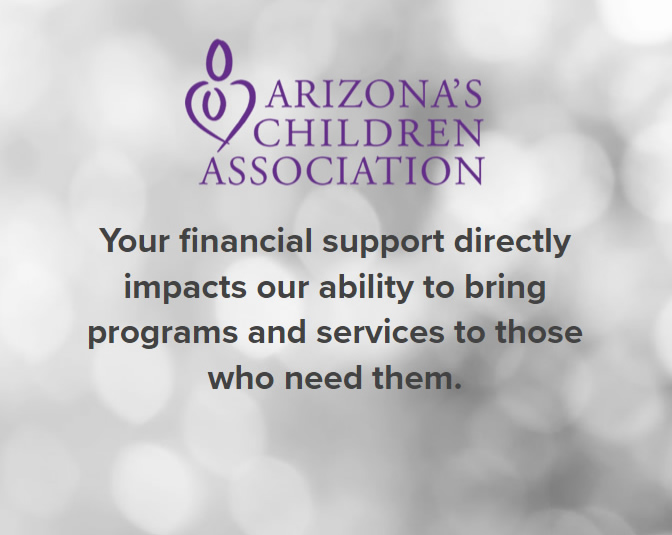
 English
English Spanish
Spanish

